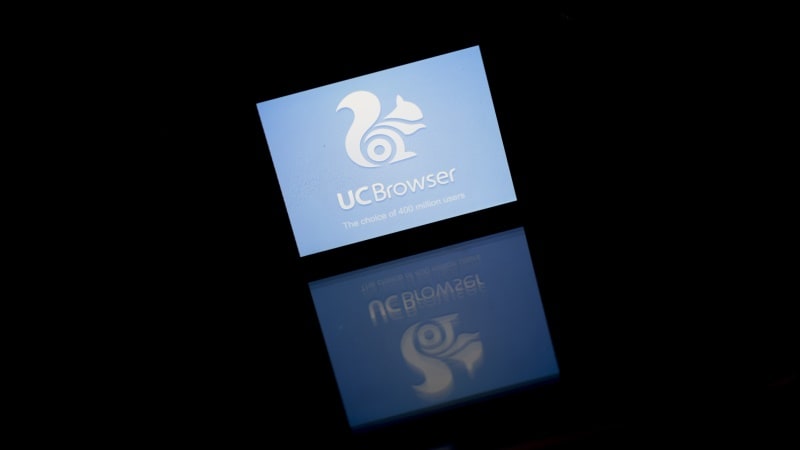
India is intensifying a crackdown on Chinese technology companies with a government official saying security testing of China’s UC Browser is being done to see if it’s leaking data.
Testing on the popular browser made by Alibaba Group Holding Ltd.’s UCWeb is under way and the government is awaiting a report before deciding on any action, Ajay Prakash Sawhney, secretary in the Ministry of Information Technology, said on Wednesday. UC Browser has over 100 million monthly active users in India and claims over 50 percent of the mobile browser market in the country.
The IT Ministry said earlier this month that it was focusing on “securing Indian cyberspace” and its digital infrastructure. It directed over two dozen smartphone companies to provide detailed written responses by Monday on their “safety and security practices, architecture, frameworks, guidelines and standards.” The companies included prominent Chinese device makers such as Xiaomi, Lenovo, Oppo, Vivo and Gionee as well as global brands Apple and Samsung and Indian companies.
While the government hasn’t singled out Chinese phone companies, it noted in the directive that mobile devices have achieved 75 percent penetration in the Indian market and “there’s a need to ensure the safety and security of the devices.”
Brands such as Xiaomi, Vivo, Oppo and Lenovo have improved their market share, accounting for over half of the smartphone shipments to India for the second successive quarter ending in June, according to data from researcher IDC. Xiaomi, which is fast closing the gap with the country’s leading brand Samsung, plans to open 100 brick and mortar stores in the next two years to further its market share.
Samsung, Apple, Micromax, Oppo and Vivo did not respond to emails seeking comment on the government’s directive. Xiaomi declined to comment.
Border standoff
The security audit comes amid a tense standoff between the armies of India and China over territory in the tiny mountain kingdom of Bhutan.
India’s sudden directive has puzzled phone makers. “Let’s not play hide and seek. If the government wants that Indian data should not go out, it should say so decisively,” Pankaj Mohindroo, national president of the Indian Cellular Association, said in a phone interview.
The government could be seeking to locate data hosting servers in India, create a national firewall for the apps and create a standard for a secure smartphone, he said.
It’s not just the growing market share of Chinese brands that worries the government, but also that the bulk of components are directly imported from China. “Over 95 percent of the components come from China or are made by Chinese-owned companies in Taiwan or elsewhere, nothing is made in India other than chargers, batteries and headsets,” said Sudhir Hasija, chairman of Karbonn Mobiles Pvt, a domestic budget phone maker.
“There’s a feeling that China collects data through their chip sets from users,” said Hasija. “This is the worry of the whole world and this is also the worry of the Indian government.”
India’s imports of electronics could rise to about $300 billion (roughly Rs. 19,22,538 crores) by 2020 with demand increasing to $400 billion (roughly Rs. 25,63,383 crores), according to a June forecast by The Associated Chambers of Commerce & Industry of India, an industry body.
“This could be the first step to getting technology companies to set up servers within India,” said Ravinder Zutshi, a former deputy managing director of Samsung India and the ex-chief of the country’s leading consumer electronics manufacturers’ body. “This could be the government’s way of ensuring that there’s no data leaking outside the country’s borders,” Delhi-based Zutshi said by in a phone conversation.
[“Source-gadgets.ndtv”]



